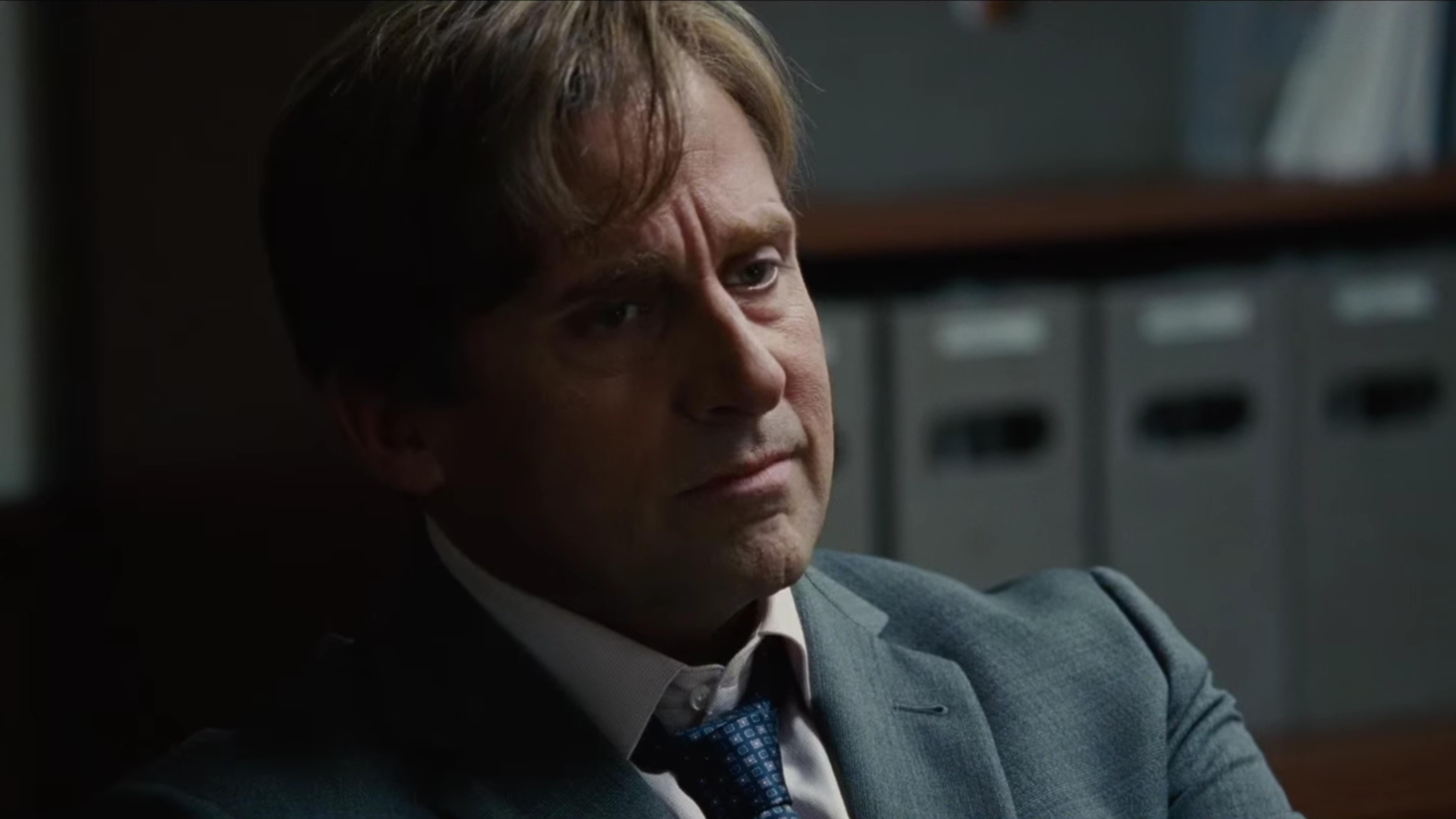When Paramount announced Adam McKay, known for popular comedies like Stepbrothers and Anchorman, would direct The Big Short—a film about the 2008 financial crisis—there was some understandable skepticism. The film, based on the book of the same name by Michael Lewis (the man behind the books-turned-Oscar-contenders Moneyball and The Blind Side), does after all recount the mind-blowing greed and stupidity that resulted in millions of Americans losing their homes and livelihoods. Turns out, sometimes it takes a comedian to do such an unfunny subject justice.
McKay, who also penned the script, understands that most laypeople find finance pretty dull. More importantly, he realizes that the onus is on him to make it interesting, not on the audience to be interested—he pulls out all the stops to win that interest, from trusty standards like irony and snappy dialogue to more offbeat tactics, like Margot Robbie in a bubble bath breaking the fourth wall to explain mortgage-backed securities. If that sounds a little too cloying, you may want to brace yourself for a lot of fourth wall breaches—but rest assured, The Big Short earns each and every one of them.
McKay continues to enlist pop culture icons to explain complex financial concepts throughout the film, a brilliant maneuver, and one that both indicts and excuses the audience. We are forced to admit that we’re more interested in hearing about finance from an actress than an economist, but McKay reminds us that it’s human nature to avoid difficult subjects in favor of easily digestible pop culture. This—and the slew of ADD-friendly, era-appropriate photos and video clips cut into the narrative—provides cultural context for how so many were blindsided by a housing market crash that hindsight shows was inevitable.
McKay enlists pop culture icons to explain complex financial concepts throughout the film, a brilliant maneuver, and one that both indicts and excuses the audience.
An A-list ensemble cast (Ryan Gosling, Brad Pitt, Christian Bale, Steve Carell—and those are just the headliners!) and frenetic editing lend The Big Short the tone and pacing of a heist movie—a remarkable feat for a film inspired by the most despicable intersection of corporate greed, government complicity, and lack of foresight in recent history, and a choice that is very deliberate. For all of his fourth wall shattering, McKay manages to perfectly embody the “show don’t tell” screenwriting ideal, keeping the audience distracted with the same tactics that kept most Americans from realizing what was going on the early 2000s.
The Big Short expertly manipulates its audience, keeping us laughing just hard enough to temper our anger—until it doesn’t. Because while The Big Short will make you laugh, once it’s done distracting you, once it lets you breathe for long enough to grasp the full extent to which the banks and government defrauded the American public, it will make you angry. If it doesn’t, you’re probably one of the bad guys. FL









